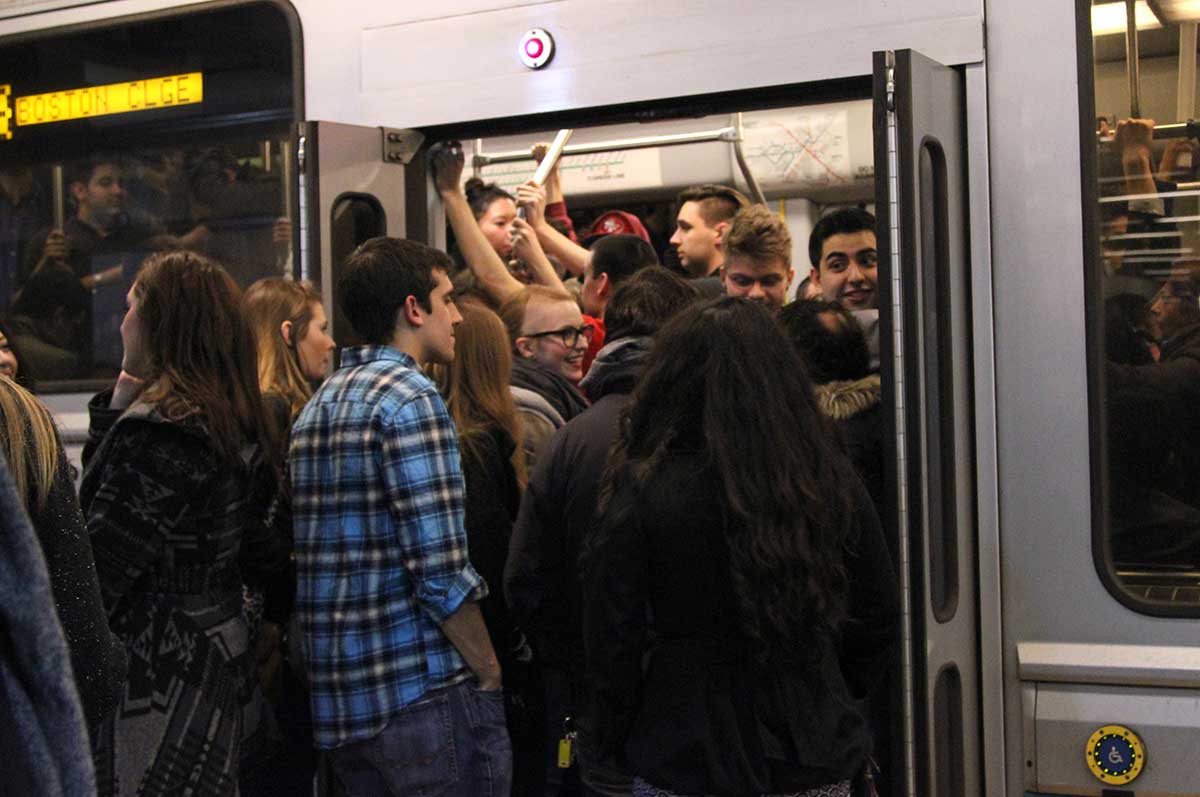Late-Night MBTA Service Appears to Be All but Dead

Photo by Olga Khvan
Late-night service on the Massachusetts Bay Transportation Authority appears to be headed for its last stop.
On Monday, members of the agency’s Fiscal and Management Control Board all but killed the service on the grounds of low ridership and limited outside support for the service. The board formally began the process of ending late-night service by voting to host a mandatory public hearing on it before making a decision. The board seemed unified in its thinking that getting rid of the service would save the cash-strapped agency as much as $14.8 million.
The program began as a pilot service in March 2014 with the financial backing of several local companies before being extended in February 2015 with minor tweaks, like stopping service at 2:00 a.m. instead of 2:30 a.m. Additional corporate sponsors of the late-night service have not stepped forward as backers of the program hoped they would, leaving the MBTA to foot the bill. A regular ride on the MBTA costs approximately $1.43 to subsidize, but a late-night service ride costs the agency a whopping $13.38 per MassDOT.
“It has failed,” said board member Lisa Calise.
If the service ends, it is unclear exactly when it would cease to operate, though Transportation Secretary Stephanie Pollack said the service could end as soon January or even late February.
The MBTA is facing a $7.3 billion maintenance backlog it hopes to resolve by 2040, but with no new funds coming from Beacon Hill, the board is faced with the unenviable task of figuring out how to pay for everything, and that means cuts. The Green Line Extension, art programs, and even services for the disabled are on the chopping block as the beleaguered agency tries to find a way to right itself.
Even something as popular as the late-night service, which served between 15,000 and 17,000 riders at a fairly regular clip on the weekends, is unprotected during this newfound time of austerity at the MBTA.
The cessation of late-night service would mark the second time this century an attempt to provide late-night public transportation has failed. From 2001-2005 the MBTA provide replacement bus service along the MBTA’s transit lines, but it was infrequent and a major money loser. Riders were picked up on the street and dropped off only at station stops, which was similar to what passengers experience when service is rerouted or shut down.
Still, the Night Owl was cheaper than the current late-night service: it cost the MBTA a per passenger subsidy of $7.53, or roughly $9.17 in current dollars.

